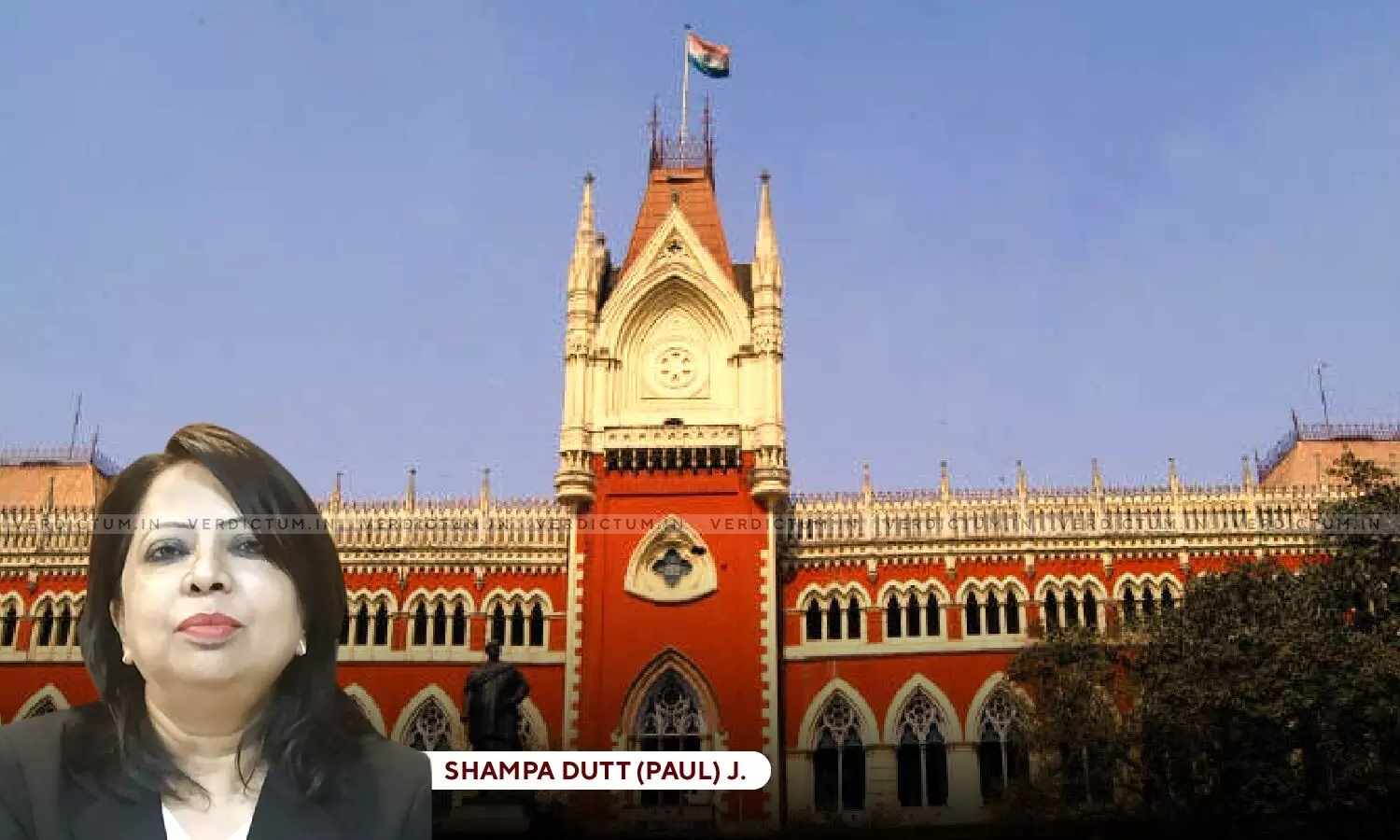
Woman Leaving Matrimonial Home After 29 Yrs Of Marriage With Traditional Ornaments Cannot Be Basis Of Criminal Case U/s. 420 IPC: Calcutta HC
 |
|The Calcutta High Court in a cheating case has held that a woman leaving her matrimonial home and that too after 29 years of marriage with the traditional ornaments and accessories cannot be the basis of a criminal case under Section 420 of the Indian Penal Code (IPC).
A Single Bench of Justice Shampa Dutt (Paul) observed, “From the materials on record, it appears that the petitioner allegedly left her matrimonial home after 29 years of marriage … These ornaments/accessories as described, are worn on regular basis by a traditional Bengali married woman, who chooses to wear them. The phones which might be for her own use and the ornaments as described, cannot be the basis of a criminal case between a married couple, that too, after 29 years of marriage.”
The Bench took note of the fact that the further allegation was that the complainant was allegedly abused in filthy language by the petitioner/accused persons.
Advocate Sanat Kumar Das represented the petitioner while Advocates Subham Bhakat and Manas Kumar Das represented the opposite parties.
Factual Background -
The petitioner's case was that she was the wife of the opposite party and the marriage between the couple was solemnized in the year of 1999. Due to tremendous torture since marriage, it became impossible for her to tolerate any further, and ultimately on or about May 2019 (after 29 years), she was compelled to lodge a complaint with the Officer-in-Charge for investigation for the commission of offences punishable under Sections 498A/323/324/506 of the IPC.
The Magistrate on an application preferred by the opposite party, issued a search warrant for the search/recovery of personal articles from the premises of the petitioner. The counsel for the petitioner contended that the said Magistrate erred in law and fact, as in the petition of complaint, there was no allegation that the accused/petitioner had custody of any article, belonging to the complainant/opposite party. Hence, the petitioner preferred a criminal revision application praying to quash the proceeding under Sections 420/406/467/468/471/120B/34 of the IPC pending before the Magistrate.
The High Court after hearing the contentions of the counsel noted, “These allegations, clearly do not make out any case as alleged under Sections 420/406/467/468/471/120B/34 of the Indian Penal Code against the petitioner and thus, this is a fit case where the inherent powers of this court should be exercised for ends of justice, to prevent abuse of process of the law/court.”
The Court said that the petitioner can avail of legal aid including a legal aid counsel on approaching the respective legal services authority to conduct the proceedings on her behalf.
Accordingly, the High Court allowed the revisional application and quashed the order of the Magistrate along with the pending proceeding.
Cause Title- Mithu Dash @ Bhuiya v. State of West Bengal & Anr.